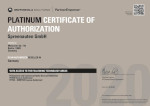1.What does the anti-corruption guideline of Spreenauten GmbH cover?
- This anti-corruption guideline serves to define the responsibilities of Spreenauten GmbH and our employees to adhere to and maintain our zero tolerance position towards bribery and corruption.
- It also serves as a source of information and orientation for the employees of Spreenauten GmbH. It helps them to recognise and deal with bribery and corruption issues and to recognise and fulfil their responsibility in this respect.
2. declaration of principle (anti-corruption & anti-bribery)
- Spreenauten GmbH is committed to ethical and honest business conduct and is committed to the introduction and enforcement of processes that guarantee the prevention of bribery. Spreenauten GmbH pursues a zero tolerance policy towards bribery and corrupt activities. We are committed to professional, fair and integrity in all business transactions and relationships, wherever we operate.
- Spreenauten GmbH will constantly comply with all laws for combating bribery and corruption in all legal systems in which we are active. We are bound by the laws of Germany, including the Anti-Corruption Act as amended in 2015, with regard to our conduct at home and abroad.
- Spreenauten GmbH recognises that bribery and corruption are punishable by up to ten years in prison and a fine. If our company is found to have participated in corrupt activities, we may be fined an unlimited fine, excluded from participating in public tenders and cause considerable damage to our reputation. Against this background, we are committed to preventing bribery and corruption in our company and take our legal responsibilities seriously.
3 Who is covered by the Anti-Corruption Policy & Anti-Bribery Policy of Spreenauten GmbH ?
- This anti-corruption guideline applies to all employees:inside (temporary and permanent), consultants, contractors, trainees, seconded employees, homeworkers, casual workers, temporary workers, volunteers, sponsors or other persons or persons who are connected with us (including third parties) and to all our subsidiaries and their employees, no matter where they are located (inside or outside the EU or Germany). The policy also applies to officers, trustees, board and/or committee members at any level.
- In connection with this guideline, the term "third party" refers to all persons or organisations with whom Spreenauten GmbH meets and works. It refers to actual and potential customers, clients, sales partners, business contacts, consultants as well as government agencies and public institutions - this includes their consultants, representatives and officials, politicians and public parties.
- All agreements that Spreenauten GmbH makes with a third party are subject to clear contractual conditions, including specific provisions that require the third party to adhere to minimum standards and procedures to combat bribery and corruption.
4 Definition of bribery
- Bribery refers to the act of offering, giving, promising, asking, agreeing, receiving, accepting or soliciting something of value or advantage in order to cause or influence an act or decision.
- A bribe refers to any form of incentive, reward or object or thing of value offered to another person for commercial, contractual, official or personal gain.
- A bribe is not limited to the act of offering a bribe. If a person receives a bribe and accepts it, it is also contrary to the law (and to this Directive).
- Bribery is illegal. Employees may not engage in any form of bribery, whether direct, passive (as described above) or through third parties (e.g. intermediaries:inside or dealers). You may not bribe a foreign public official anywhere in the world. They may not accept bribes in any form and if they are not sure whether something is a bribe or a gift or an act of hospitality, they must ask the Spreenauten GmbH Compliance Manager for further advice.


 German
German






